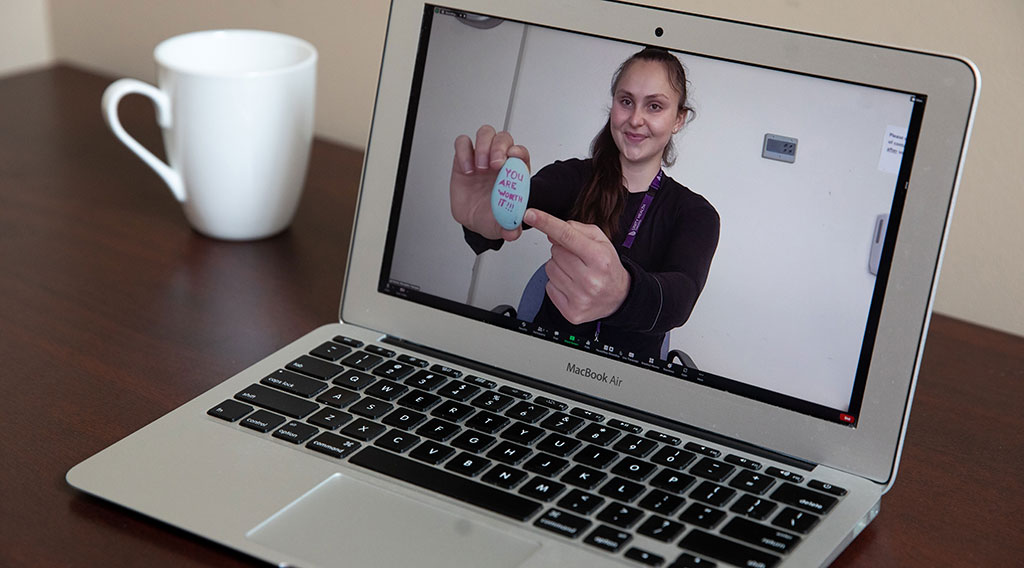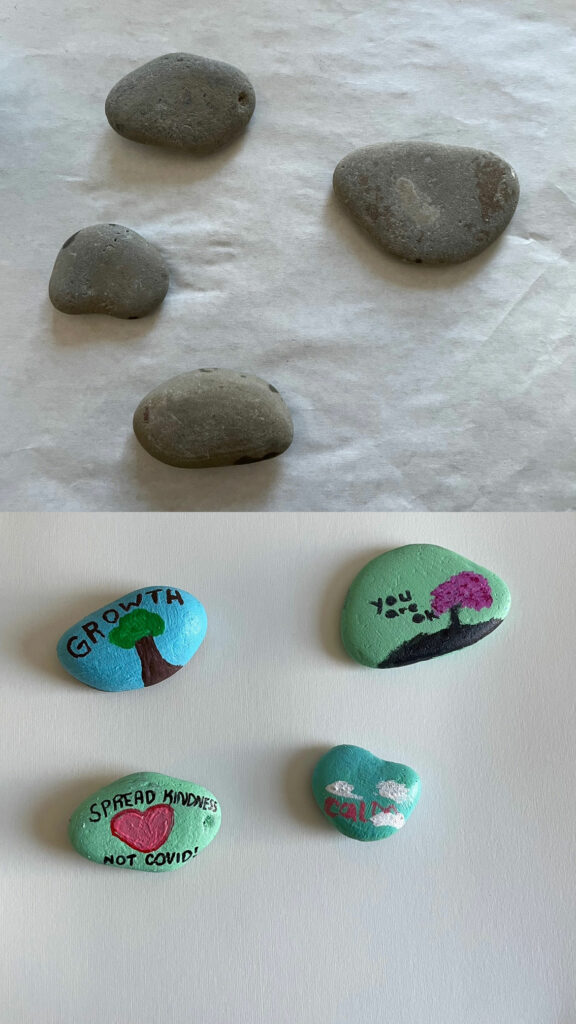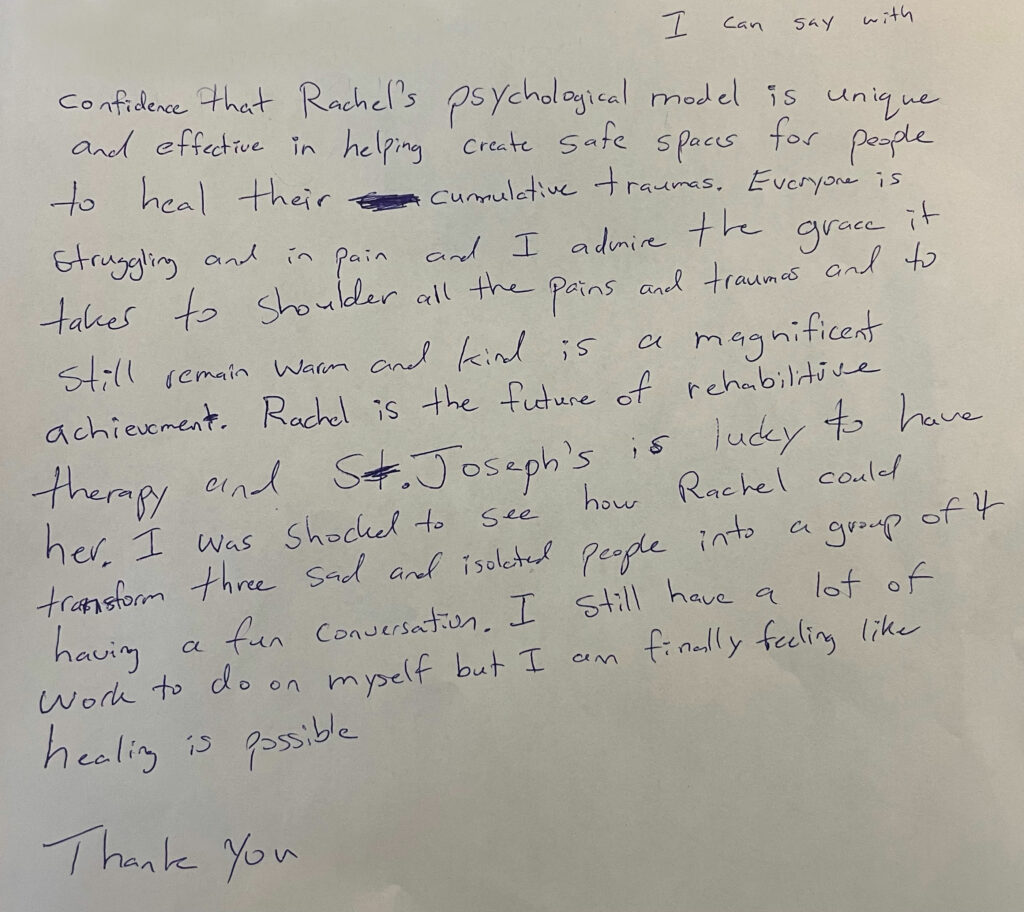Rx for isolation: Recreation therapist helps vulnerable patients connect at St. Joseph’s Health Centre

Photo: Katie Cooper
For patients at the Adult Inpatient Mental Health Unit at St. Joseph’s Health Centre, group activities don’t just break up the day – they are a lifeline in times of painful isolation.
“Isolation is such a big contributor to acute mental health problems,” says the unit’s Recreation Therapist Rachel Blair. “Group interventions are really important, now more than ever.”
Blair and Spiritual Care Practitioner Roberta (Robbie) Nanson, who co-host a number of group activities in the unit, note that many people with mental illness are marginalized and self-isolate at the best of times. The pandemic has compounded that isolation with stay-at-home orders and shuttered community resources.
“When you have depression or anxiety or mental illness with a psychotic feature, that isolation is really not a safe environment to staying well or recovery and healing,” says Nanson.
So in late December, when the Omicron variant threatened to halt group programming at St. Joseph’s Inpatient Mental Health Unit, Blair and Patient Care Manager Mental Health Krista Couture worked quickly to find a solution. In the first two weeks of January, they got group activities back up and running on Zoom, working with IT and sourcing iPads to make it happen.
Not only does the Zoom format mean can patients can safely join from their rooms, but more can participate than the former limit of five people at in-person events.
“It’s great to see patients’ faces light up when people are coming onto the Zoom group meeting and they say, ‘We can see people again!’” Blair says.
Blair’s activities include everything from painting ‘kindness rocks’ to chair yoga to guided mindfulness activities. She makes sure everyone who wants to join an activity has a device, sign-up instructions and a link to the hospital’s free Wi-Fi ahead of time – along with the supplies they need. She kicks off each meeting with an ice-breaker to get people talking, and sometimes even laughing.
“I was shocked to see how Rachel could transform three sad isolated people into a group of four having a fun conversation,” wrote one patient. “I still have a lot of work to do, but I finally feel like healing is possible.”
Blair says the activities themselves are therapeutic at more than a surface level – from painting rocks to mindfulness practice, which can help patients suffering from an exhausting loop of negative thoughts focus on the moment.
“There’s a misconception that this is activity for activity’s sake,” she says. “It’s not. We’re empowering people. They paint a rock, that’s a sense of accomplishment. They get to pick their paint colours, that’s a sense of control.”
Nanson and Blair offer patients a workshop based on Brené Brown’s book The Gifts of Imperfection. Nanson cites an important lesson from that book: “You are worthy of love and belonging.”
These group activities, she says, give patients a place to belong.
By: Laura Boast



